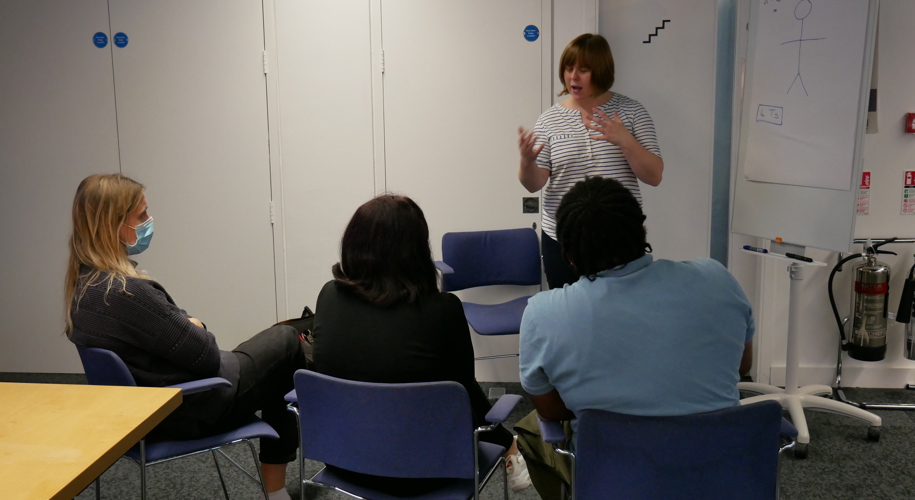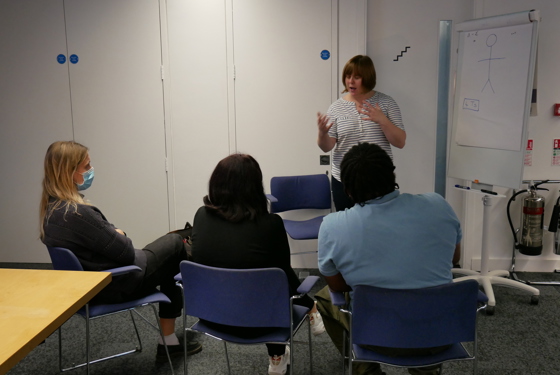Guidance for trainees and trainers about ARCP outcomes at key way points, including guidance for ST2 trainees who fail the Part 1 MRCOG, and ST5 trainees who fail the Part 2 MRCOG.
Key way points in O&G training
There are key way points in the O&G curriculum when the ARCP process is particularly important to ensure trainees are clinically competent to move to the next level of training:
- The move from junior to middle-grade level (ST2 to ST3)
- The move from middle-grade to senior level (ST5–ST6)
At these way points, the trainee must provide evidence to confirm they’ve achieved the competencies and achievements stated in the matrix of educational progression (see below), including passing the relevant part of the MRCOG exam.
Progression through training – general principles
The General Medical Council (GMC) approved the entirety of the RCOG curriculum; therefore, trainees must be assessed against the whole curriculum, which includes knowledge, skills and professional and leadership development. Trainees have to be competent in all of these areas at each training level. Progress through training is assessed by monitoring the successful attainment of all aspects of the curriculum and demonstration of adherence to professional standards of conduct (Good Medical Practice). Success in the MRCOG exam is used as part of the assessment of a trainee’s knowledge base.
To progress from ST2 to ST3, a trainee should have:
- Passed the Part 1 MRCOG
- Completed the basic logbook competences
- Completed the OSATS listed in the matrix of educational progression confirming they have the skills to work second on call in O&G
To progress from ST5 to ST6, a trainee should have:
- Passed the Part 2 MRCOG
- Completed the core section of the logbook
- Completed the basic ultrasound modules
- Undertaken the appropriate training in sexual and reproductive health, as specified in the matrix of educational progression
- Completed all the OSATS listed in the matrix to show evidence of the clinical competencies required to move to ST6
This page outlines the RCOG’s guidance on how to manage training when an ST2 trainee fails the Part 1 MRCOG or an ST5 trainee fails the Part 2 MRCOG, to ensure consistency between deaneries and offer transparency to trainees. These are guidance notes only, as trainees need to be managed individually and ultimate responsibility for training rests with a trainee’s deanery and Postgraduate Dean.
Specific advice
This section provides more detailed advice for particular scenarios.
Trainees who fail the Part 1 MRCOG but have passed all other clinical competencies (ST2 level)
- These trainees should be issued an ARCP outcome 3, highlighting that the competence of exam success is yet to be achieved and setting the need to pass the Part 1 MRCOG as the objective within a defined period of time
- Within the clinical environment, if the trainee has been deemed competent in all other areas (with respect to both professional and educational progress), the trainee should normally progress from ST2 to ST3 clinical duties, which allows the trainee to progress towards second on-call duties.
- Manual removal of placenta (MROP) is a specific exception to this, please refer to the ARCP outcomes page for further information.
- However, this decision should be taken on an individual basis at deanery level, based on the Educational Supervisor’s report
Trainees who fail the Part 1 MRCOG and have failed other specified clinical competencies (ST2 level)
- These trainees should be issued an ARCP outcome 3, highlighting the need to acquire the relevant competencies at ST level and to pass the Part 1 MRCOG
- As the trainee hasn’t achieved all of the clinical competencies, they should remain at ST2 level and be provided with training support to allow them to develop the required skills
- A time limit should be set for attaining the clinical skills and passing the Part 1 MRCOG
- Follow-up of these trainees is determined by the deanery, but the RCOG recommends a review after 6 months, with additional targeted support offered as necessary; the lack of progress in 2 areas of the curriculum (Part 1 MRCOG and clinical competencies) is concerning, and should normally warrant a repeat ARCP within 6 months
- Further extensions to training and adjustment of the CCT or CESR(CP) date are determined by the deanery
Trainees who fail the Part 2 MRCOG
- These trainees should be issued an ARCP outcome 3, highlighting the need to pass the Part 2 MRCOG within a specified timeframe
- Without the Part 2 MRCOG, trainees are unable to register for Advanced Training Skills Modules (ATSMs) or subspecialty training
- The decision on whether the trainee can proceed to third on-call duties should be taken by the Educational Supervisor depending on the trainee’s acquisition of clinical competencies, and recorded in the Educational Supervisor’s Report.
General guidance
The essential principles are as follows:
- Trainees who don’t pass the Part 1 MRCOG before completion of ST2, and trainees who don’t pass the Part 2 MRCOG before completion of ST5, have not completed all of the competencies within the timeframe specified in the curriculum and are therefore unable to demonstrate adequate progress
- An ARCP outcome 3 should be issued, to reflect the need for additional training time (ARCP outcome 3 = inadequate progress by the trainee; additional training time required)
- The additional training time required, and the clinical level at which the trainee can work (based on their attainment of clinical competencies), should be decided at deanery level by the Educational Supervisor, and recorded in the Educational Supervisor’s report.
- The trainee’s estimated CCT or CESR(CP) date should be adjusted accordingly


Curriculum
The complete specialty training curriculum for O&G – core, ultrasound, ATSMs, subspecialty and academic


MRCOG exams
Information on how to prepare for the Part 1 and Part 2 MRCOG
